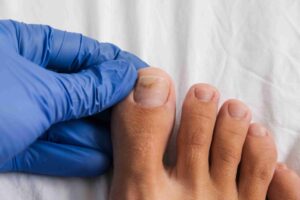Leg Ulcer Classifications
What is a leg ulcer?
A leg ulcer is a full thickness skin loss on the leg or foot due to any cause. Leg ulcers often arise in conjunction with vascular, arterial, or neuropathic illnesses but can occur in relation with a variety of disease processes. An acute or chronic leg ulcer is possible.
Leg ulcers frequently seep (ooze fluid or pus) and, if ignored, can grow larger. A leg sore that doesn’t heal after three months of treatment is considered a chronic condition.
What causes leg ulcers?
Injury or pressure, such as that from a plaster cast or an improperly fitting ski boot, can cause an ulcer. Additionally, bacterial infections, including impetigo, ecthyma, and cellulitis, as well as less frequently tropical ulcer, TB, or leprosy, may be the cause.
What are the symptoms of leg ulcers?
The first sign of a leg ulcer is a lower leg wound that does not heal with treatment after two weeks. The sore may be purple, red, brown or yellow (or a mix of colors). Leg sores that won’t heal often release fluids.
Other symptoms of a leg ulcer include:
- Dry, scaly or itchy skin.
- Leg pain, particularly after standing for a while.
- Hard bumps on the skin or hardened skin.
- Swelling (edema) in the lower legs.
- Red, blue or purplish skin color (like a bruise).
Classification of Leg Ulcers
- Venous leg ulcers – can exist after a minor injury if persistently high pressure in the veins of the legs has weakened the skin
- Diabetic leg ulcers – caused by the high blood sugar linked with diabetes
- Arterial leg ulcers – caused by poor blood circulation in the arteries
- Traumatic leg ulcers – caused by injury to the leg
- Vasculitic leg ulcers – associated with chronic inflammatory disorders like rheumatoid arthritis and lupus
- Malignant leg ulcers – caused by a tumour of the skin of the leg
Are you suffering from this condition? At The Chelsea Clinic, we can help. One of our podiatrist can assist and then recommend what treatments are best to get you back on track.  Podiatrist South Kensington
Podiatrist South Kensington
Schedule an appointment here or you may call us at +44 (0) 207 101 4000. 
We hope you have a feetastic day! 

-The Chelsea Clinic and Team
Learn more about Fungal Nails


 Podiatrist South Kensington
Podiatrist South Kensington




